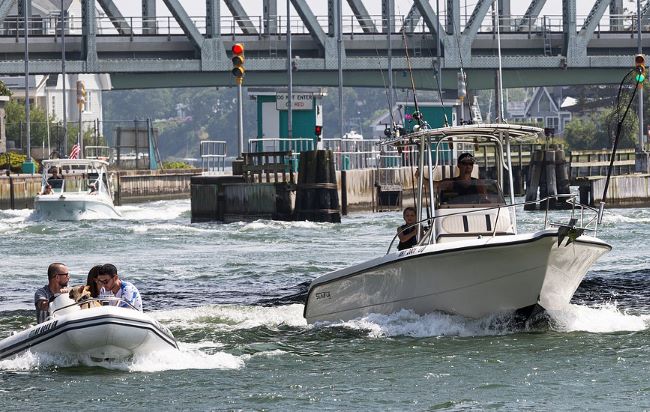Keep Summer Fun with Watercraft Insurance

When it’s hot out, few things are better than heading to the water with your watercraft. Your summer fun could end fast if there’s an accident, injury or theft. Homeowners won’t typically provide the coverage you need, so make sure you have the right watercraft insurance.
Defining Watercraft
A watercraft is a general term that can refer to any vessel used to travel on water. This can include different types of boats as well as other types of vessels. The term “personal watercraft” is usually used to refer specifically to small vessels that are powered by a motor, such as a Jet Ski, Sea-Doo or WaveRunner.
These definitions might seem trivial, but it can be important to know what type of vessel you have. That way, you’ll know how insurance policy terms and local laws treat your watercraft.
Homeowners Insurance Coverage for Watercraft
According to the Insurance Information Institute, canoes and some other small boats may have limited property damage coverage under a standard homeowners or renters insurance policy, but liability coverage may not be provided without a special endorsement.
You also need to check your policy for limits and exclusions. For example, if your homeowners policy has a limit of $1,000 for watercraft and your vessel is worth $10,000, you’ll probably want to secure additional coverage. Your policy may also exclude certain types of watercraft, such as personal watercraft or pontoons.
Watercraft Insurance Coverage
You can secure the insurance you need by taking out a boat or personal watercraft insurance policy. Watercraft insurance often provides coverage for the following:
Theft
Towing
Medical payments
Third-party property damage
Third-party injury
Liability
Coverage terms vary, so see your policy for details. You may be able to secure additional coverage types.
Watercraft Insurance Requirements
Watercraft insurance is required in some states and for some types of vessels. Some marinas may also have insurance requirements, and if you financed your watercraft, the lender may have insurance requirements.
In many cases, watercraft insurance is optional. However, purchasing it is still a smart way to protect both your investment and your personal finances.
Reasons to Purchase Watercraft Insurance
There are many ways that a day at the lake, river or ocean can go wrong.
Someone could steal your watercraft. Although you can – and should – file a police report, without insurance, you could be out the cost of your boat or personal watercraft.
You could cause a collision with another watercraft or structure, such as a dock. You could be on the hook for the resulting property damage.
You could hit a person and cause serious injuries. You could be held responsible for the medical expenses and sued for lost wages and other costs.
Watercraft insurance can provide protection against these scenarios and more.
Watercraft Statistics
Watercraft thefts aren’t as common as auto thefts, likely in part because not as many people have watercraft, but these thefts do occur.
Accidents are another risk, and they can lead to both property damage and injury. According to the 2020 Recreational Boating Statistics from the U.S. Coast Guard, 7,248 vessels were involved in 5,265 accidents in 2020, resulting in damages of more than $62 million, as well as 3,191 injuries and 767 deaths.
Safety Tips
Many accidents can be avoided.
Do not operate your watercraft when you are intoxicated. In New York and New Jersey, boating while intoxicated is illegal, just like driving while intoxicated.
Pay attention to your surroundings. According to the U.S. Coast Guard, operator inattention was the leading contributor to accidents in 2020, contributing to 664 accidents, 55 deaths and 383 injuries.
Give other watercraft space. Also look out for people in the water and give them plenty of space.
Know the local rules. Recreational areas often have safety rules. Read them and follow them. Also pay attention to any city, state or federal laws that apply to you.
Follow reporting requirements for any accidents. Under federal law, boating accidents must be filed with the state if a person dies, a person is injured and requires medical treatment, a person disappears from the vessel and may be dead or injured, the boat is destroyed or property damage exceeds $2,000.
Watercraft Insurance Provides Peace of Mind
Strong safety practices can help prevent many accidents, but there are still risks. That’s why there’s insurance. BNC can help you secure the coverage you need, including boat and watercraft insurance. Learn more.







